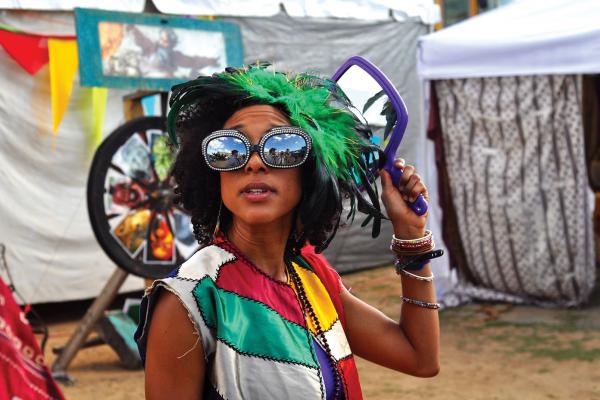The wry 20th century theologian saw the “radical and wondrous splendor” of the big top as an image of the kingdom of God: miraculous, death-defying stunts; an impending sense of both calamity and delight; parodied pantomimes of social convention—all enacted by a company of the “freaks” snubbed by polite company. “The circus is eschatological parable and social parody,” wrote Stringfellow. “It signals a transcendence of the power of death, which exposes this world as it truly is while it pioneers the kingdom.”
Drawing inspiration from the biblical covenants between God, people, and land—as well as Stringfellow’s beloved circus and other resistance traditions, including Brazilian Carnivale parades, Burning Man, West African drumming, and the warnings of Indigenous elders—the members of Holy Fool Arts pitched their tents in Philadelphia this summer to stage the seventh Carnival de Resistance, “a traveling carnival, village, and school for social change bridging the worlds of art, activism, and faith.”
During the week, the troupe partnered with local groups to paint murals, work in gardens, teach Bible studies, and join creative acts of protest. On weekends, they staged ceremonial theater performances (with a bike-powered sound system), demonstrated fossil-fuel-free living in their eco-village, and hosted an interactive carnival midway, complete with sideshow attractions, art installations, crafts, and games.
“Carnival traditions are about simultaneously subverting the dominant order while temporarily inhabiting an alternative world of festive celebration, playful mockery, and embodied community,” director Tevyn East told Sojourners. “We at the Carnival de Resistance seek to honor these long-standing traditions and spark the prophetic imagination through acts of resistance and incarnation.”
Read the Full Article

